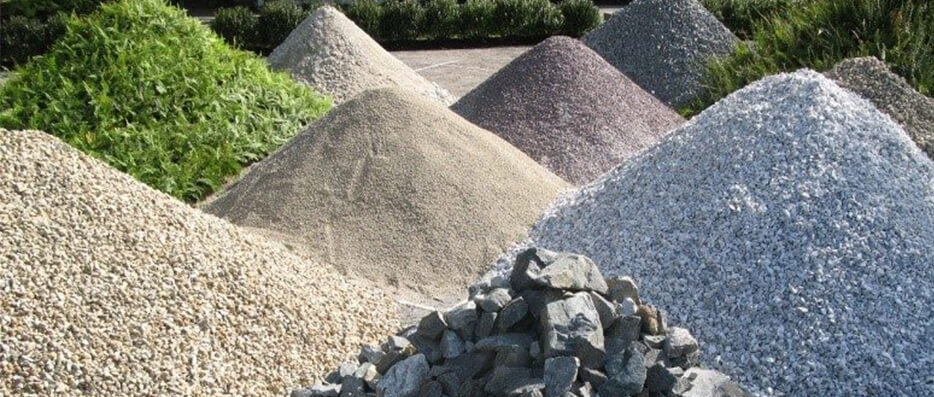Introduction
Aggregates, also known as construction aggregates, are materials used in the construction industry for various purposes. These materials are composed of various rock fragments, sand, gravel, or crushed stone.
Aggregates are an essential component of many construction projects, as they provide the structural integrity, stability, and strength needed for building. They are also used in a variety of other industries, such as landscaping, road building, and infrastructure development.
Types of Aggregates
There are many different types of aggregates, including gravel, sand, stone, and more. Each type has unique properties and uses, so it is important to choose the right one for your specific project. For example, gravel is often used for drainage, while sand is used in masonry and concrete mixes.
Properties and Uses
The properties of aggregates, such as size, shape, and texture, can greatly impact their suitability for different uses. For example, those with a rough texture are ideal for use in concrete, while smoother are better suited for landscaping projects. Additionally, the size of the aggregate can impact the strength and stability of structures.
The Benefits
Aggregates have several benefits in construction and other industries. Some of the key benefits include:
- Affordability: Are relatively inexpensive compared to other building materials, making them a cost-effective option for construction projects.
- Versatility: Can be used in a wide range of applications, from concrete production to landscaping and road building.
- Sustainability: Many are made from recycled materials, reducing the environmental impact of construction and other industries.
- Durability: Are strong, long-lasting, and able to withstand extreme weather conditions and heavy use.
Aggregate Sizes
When choosing aggregates for a project, it is important to consider the size of the aggregate. They come in different sizes, from large stones to small pebbles. The size of the aggregate will impact the overall strength and stability of a structure, as well as the appearance and feel of the finished product. We offer various sizes and can help you decide which is best for your application.
Fine Aggregates
Fine are typically smaller than coarse and are used to produce concrete, mortar, and asphalt. They are also used in landscaping to create decorative elements, such as pathways and water features.
Coarse Aggregates
Coarse are used in construction to provide stability and strength to buildings and other structures. They are also used in road building, infrastructure development, and as backfill material.
Finding the Right Aggregate Supplier
To ensure the quality and success of your project, it is important to choose a reliable and affordable aggregate supplier. Consider factors such as delivery options, cost, and quality control measures when selecting a supplier. We source all of our materials from the Highlands to ensure we offer the best quality available.
Aggregate Delivery and Cost
When ordering, it is important to consider the cost and delivery options. Some suppliers offer bulk delivery for large projects, while others may offer smaller, more convenient delivery options. It is important to consider the cost of delivery and any additional fees when calculating the overall cost of your project. No matter how much material you decide to purchase, we will accommodate your needs and give you a very competitive price. Very rarely is there anyone else offering the same quality as us at a lower price.
Quality Control of Aggregates
To ensure that you are using the best quality aggregates for your project, it is important to implement quality control measures. This includes checking the aggregate for signs of contamination, ensuring that the aggregate is the correct size and shape, and verifying that the aggregate meets industry standards for strength and stability.
Conclusion
In conclusion, aggregates play a critical role in construction and landscaping projects. Understanding the different types of aggregates, their properties and uses, and how to choose the right size and supplier are all crucial steps in ensuring the success of your project. By implementing quality control measures, you can ensure that you are using the best quality to meet your specific needs.
In this article, we have covered the essential information you need to know about aggregates, including types, properties, uses, aggregate sizes, finding the right supplier, delivery options, cost considerations, and quality control.
Remember, aggregates are an important investment for any construction or landscaping project, so it is important to take the time to research and select the right type of aggregate for your specific needs. With the right information and the right approach, you can ensure that your project is built to last and provides the desired results. Whether you are a contractor, landscaper, or DIY enthusiast, the knowledge and tips outlined in this article will help you make informed decisions about your aggregates and lead to successful projects.
FAQs about Aggregates
- What are aggregates used for?
They are used in the construction industry for various purposes, including concrete production, road building, landscaping, and infrastructure development. They play an important role in ensuring the success of many construction projects. - What is the difference between fine and coarse?
Fine aggregates are smaller in size and used in concrete, mortar, and asphalt, while coarse aggregates are used in construction to provide stability and strength to buildings and other structures. The type of aggregate used depends on the specific application and the desired properties of the final product. - Are aggregates environmentally friendly?
Many are made from recycled materials, reducing the environmental impact of construction and other industries. This makes aggregates a sustainable choice for construction and other projects. - What are the benefits of using aggregates in construction?
Aggregates offer numerous benefits in construction, including affordability, versatility, sustainability, and durability. They are a cost-effective option for construction projects and can be used in a wide range of applications, including concrete production, road building, landscaping, and infrastructure development. - Can aggregates be recycled?
Yes, many aggregates can be recycled, making them a sustainable choice for construction and other projects. Recycling aggregates helps to reduce waste and conserve natural resources.





